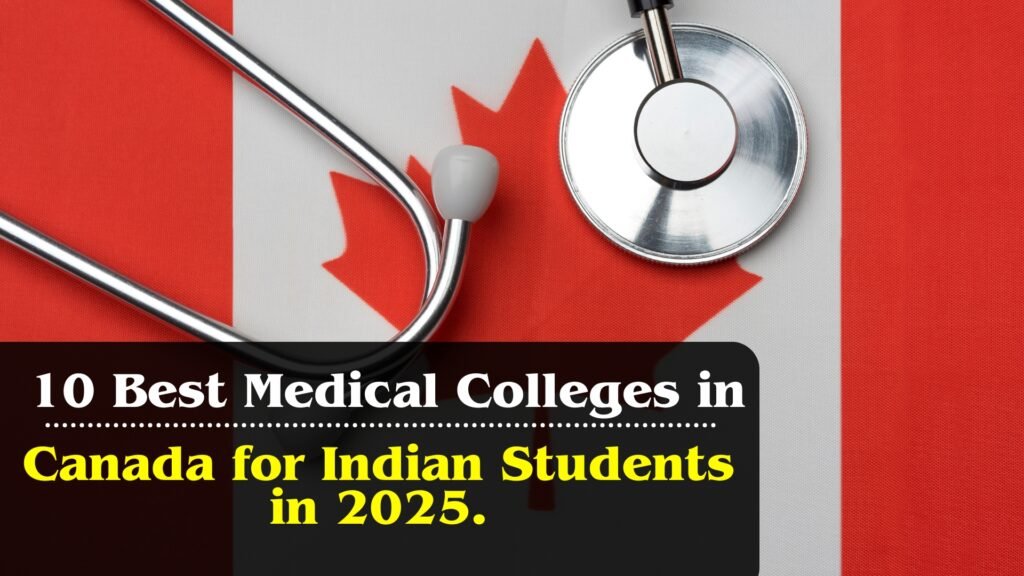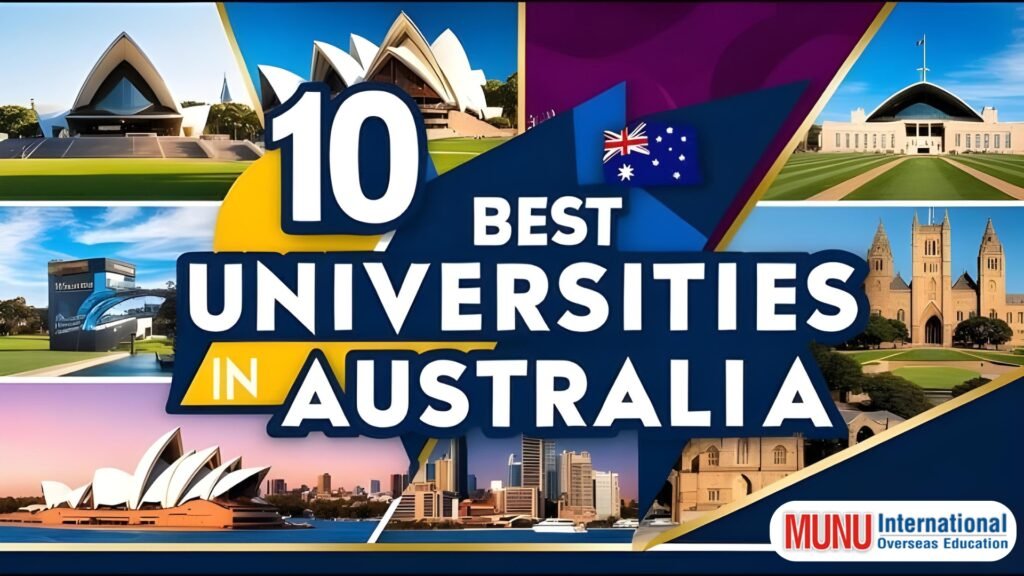Masters in Project Management in the UK 2025: Comprehensive Overview

Masters in Project Management in the UK 2025: Comprehensive Overview A Master’s in Project Management in the UK provides a transformative educational experience, equipping professionals with the expertise needed to excel in managing complex projects across various industries. As global businesses demand highly skilled project managers, UK universities have designed robust curricula to meet these evolving requirements. This guide explores key aspects of pursuing this degree, from eligibility to top universities, course details, and career opportunities. Eligibility Criteria for Masters in Project Management Applying for a Master’s in Project Management in the UK typically requires candidates to meet specific eligibility requirements: Academic Qualifications: Applicants generally need at least a 2:1 honours degree or its international equivalent. Some universities may accept a 2:2 degree if complemented by relevant work experience. Work Experience: While not mandatory for all programs, prior professional experience in project management or related fields strengthens an application. English Language Proficiency: Non-native English speakers must demonstrate language proficiency through tests like IELTS or TOEFL. Minimum scores vary by institution but generally range from IELTS 6.5 to 7.0. Top Universities in the UK for Project Management (2025) The UK is home to some of the world’s most renowned universities offering specialized Master’s programs in Project Management. Below are five leading institutions: University of Cambridge offers an MSt in Applied Criminology and Police Management, which is a 2-year part-time program with an international fee of £31,000. Loughborough University provides an MSc in International Project Management, which lasts 1 year, with a tuition fee of £30,500. University of Warwick offers an MSc in Programme and Project Management, a 1-year course with an international fee of £33,340. Lancaster University has an MSc in Project Management, which is 1 year long, with a tuition fee of £31,500. University of Birmingham provides an MSc in Advanced Engineering Project Management, a 1-year program with an international fee of £29,340. The UK is home to some of the world’s most renowned universities offering specialized Master’s programs in Project Management. Below are five leading institutions: Why Choose the UK for a Master’s in Project Management? Studying in the UK offers a unique blend of academic excellence and industry relevance, making it an ideal destination for aspiring project management professionals. Key benefits include: Global Recognition: UK universities are consistently ranked among the best worldwide, ensuring a high standard of education. Diverse Learning Environment: Students from different cultural and professional backgrounds enrich classroom discussions and enhance collaborative learning. Professional Accreditation: Many programs are accredited by esteemed organizations such as the Association for Project Management (APM) or the Project Management Institute (PMI). Career-Focused Learning: With opportunities for internships, industry projects, and real-world case studies, graduates are well-prepared for the demands of the global workforce. Core Topics Covered in Project Management Courses Master’s programs in Project Management typically cover a wide range of topics to ensure comprehensive skill development: Project Management Fundamentals: Key principles and methodologies. Risk and Quality Management: Identifying, assessing, and mitigating project risks while maintaining quality standards. Project Finance and Budgeting: Managing budgets and financial aspects of projects. Agile and Lean Methodologies: Adopting flexible project management practices for dynamic work environments. Leadership and Team Management: Enhancing interpersonal and leadership skills to manage diverse teams effectively. Programs often integrate practical components like live projects, internships, or capstone projects, enabling students to apply theoretical knowledge in real-world scenarios. Frequently Asked Questions(Faq’s) 1. What is the typical duration of a Master’s in Project Management? Most programs are one year full-time or two years part-time. 2. Can I work while pursuing the degree? Yes, many universities offer flexible learning options that accommodate working professionals. 3. Are scholarships available for international students? Numerous scholarships are offered by universities and external organizations. Check individual university websites for specific opportunities. 4. What are the career prospects after graduation? Graduates can pursue roles such as project manager, program manager, or project consultant in industries like IT, construction, healthcare, and finance. 5. Is prior work experience required for admission? While not always mandatory, relevant work experience is highly valued and can strengthen your application. Career Opportunities Post-Graduation Completing a Master’s in Project Management in the UK opens doors to diverse career paths. Graduates are equipped to manage projects in sectors such as: Information Technology (IT) Construction and Infrastructure Healthcare Finance and Banking Energy and Utilities With a growing demand for skilled project managers globally, graduates can expect competitive salaries and opportunities for rapid career progression. Conclusion A Master’s in Project Management from a UK university equips students with the theoretical knowledge and practical expertise needed to thrive in today’s competitive job market. By choosing a program tailored to their interests and career aspirations, students can position themselves for success in this dynamic field. With access to world-class education, diverse networking opportunities, and industry-aligned curricula, the UK remains a top choice for aspiring project management professionals in 2025 and beyond.
Understanding GRE Accepted Universities in the USA for MS Admissions 2025

Understanding GRE Accepted Universities in the USA for MS Admissions 2025 Pursuing a Master’s degree in the United States is a dream for many students worldwide. A crucial step in this journey is understanding the role of the Graduate Record Examination (GRE), a standardized test that serves as a common admission requirement for graduate programs. This guide offers an in-depth look into GRE-accepted universities, the application process, scholarship opportunities, and answers to frequently asked questions to help students plan their path effectively. Lorem ipsum dolor sit amet, consectetur adipiscing elit. Ut elit tellus, luctus nec ullamcorper mattis, pulvinar dapibus leo. Top GRE Accepted Universities in the USA Many prestigious institutions in the U.S. consider GRE scores as part of their admissions criteria. Below is a list of some of the leading universities and their popular programs: Massachusetts Institute of Technology (MIT) is located in Cambridge, MA and offers a popular course, MS in Computation for Design and Optimization. The average GRE score required is 320. Stanford University is situated in Stanford, CA and provides MS and Ph.D. programs. The average GRE score for admission is 325. Harvard University, based in Cambridge, MA, is known for its MBA and Ph.D. programs. Applicants typically need an average GRE score of 320. University of California, Berkeley, located in Berkeley, CA, offers MS and Ph.D. programs, with an average GRE score of 315. University of Pennsylvania, in Philadelphia, PA, provides courses such as MS in Engineering and MBA, with an average GRE score of 320. These universities are renowned for their rigorous academic standards and diverse program offerings. Securing admission to these institutions requires a competitive GRE score along with a strong academic profile. Universities in the USA Accepting GRE for MBA Top business schools in the USA also accept GRE scores as an alternative to the GMAT. Here are some notable MBA programs that consider GRE scores: Wharton School at the University of Pennsylvania MIT Sloan School of Management Kellogg School of Management at Northwestern University These programs emphasize a holistic evaluation, considering factors such as leadership qualities, work experience, and academic achievements alongside GRE scores. Is GRE Required for Master’s in the USA? While many universities mandate GRE scores for their Master’s programs, some have adopted a more flexible approach. Certain institutions waive the GRE requirement for applicants with exceptional academic records or significant professional experience. However, a competitive GRE score remains a significant advantage, especially for highly sought-after programs. Application Process for MS in the USA The process of applying for a Master’s program in the USA involves several steps: Research Programs: Identify universities and courses that align with your career goals. Prepare for the GRE: Schedule your GRE test and allocate sufficient time for preparation. Gather Application Materials: This includes transcripts, letters of recommendation, a statement of purpose, and GRE scores. Submit Applications: Complete your applications via university portals before the deadlines. Attend Interviews (if required): Some programs may include an interview stage as part of their selection process. Pay close attention to each university’s specific requirements and deadlines to ensure a smooth application process. Scholarships for GRE Accepted Universities in the USA Scholarships can significantly ease the financial burden of studying in the USA. Many universities offer scholarships based on academic merit, GRE scores, or financial need. Types of scholarships include: University-Specific Scholarships: Offered directly by the institutions. External Scholarships: Provided by organizations or foundations. It is advisable to explore scholarship opportunities through university websites and dedicated scholarship platforms to maximize financial aid options. What is a Good GRE Score? A good GRE score varies depending on the competitiveness of the program. Generally: 300-320: Suitable for mid-tier universities. 320+: Preferred for top-tier institutions like MIT or Stanford. Quantitative Scores: Crucial for STEM programs (average around 160). Verbal Scores: Important for social sciences and humanities (average around 150-155). Aiming for a score in the 90th percentile can significantly strengthen your application. Average GRE Scores for Different Disciplines The required GRE score varies across disciplines: Engineering: High quantitative scores (average 160+). Business: Balanced scores, typically 310-320. Social Sciences: Moderate scores (300-310). Understanding these benchmarks can help applicants tailor their preparation strategies. Frequently Asked Questions 1. What is the minimum GRE score required for US universities? Most universities prefer scores between 300 and 320, with top programs requiring higher scores. 2. Can I apply for an MBA in the USA with a GRE score? Yes, many MBA programs, including those at top business schools, accept GRE scores. 3. Which universities in the USA accept GRE for engineering programs? Institutions like MIT, Stanford, and UC Berkeley are popular choices. 4. Are there universities with low GRE score requirements? Yes, universities like Northeastern University may accept scores around 300. 5. How long is a GRE score valid? GRE scores are valid for five years from the test date. Conclusion:- Understanding GRE requirements and preparing effectively can significantly enhance your chances of admission to top universities in the USA. By researching programs, meeting application deadlines, and exploring scholarship opportunities, you can take confident steps toward achieving your academic and career goals in 2025.
10 Best Medical Colleges in Canada for Indian Students in 2025

10 Best Medical Colleges in Canada for Indian Students in 2025 Canada is renowned for its high-quality education, particularly in the field of medicine. For Indian students aspiring to pursue medical studies, several institutions stand out due to their academic excellence, research opportunities, and supportive environments. Here are the top 10 medical colleges in Canada for 2025: 1. University of Toronto QS World Ranking: 26 Programs Offered: MD/Ph.D., Medical Sciences Duration: 4 years Tuition Fees: CAD 91,760/year 2. McGill University QS World Ranking: 27 Programs Offered: MD, C.M., MDCM & Ph.D. Duration: 4 years Tuition Fees: CAD 49,274 – 65,881/year 3. McMaster University QS World Ranking: 140 Programs Offered: MD/PHD Duration: 3 years Tuition Fees: CAD 96,000/year 4. University of British Columbia QS World Ranking: 45 Programs Offered: MD, Ph.D. Duration: 4 years Tuition Fees: CAD 57,000/year 5. University of Alberta QS World Ranking: 230 Programs Offered: MD/Ph.D. Duration: 4 years Tuition Fees: CAD 28,500/year 6. University of Calgary QS World Ranking: 170 Programs Offered: MD Duration: 4 years Tuition Fees: CAD 29,000/year 7. University of Ottawa QS World Ranking: 150 Programs Offered: MD Duration: 4 years Tuition Fees: CAD 48,000/year 8. Dalhousie University QS World Ranking: 272 Programs Offered: MD, MSc & Ph.D. Duration: 4 years Tuition Fees: CAD 22,710 – 55,738/year 9. Université de Sherbrooke Programs include MD and various health sciences. 10. Queen’s University at Kingston Known for its strong emphasis on community health. Admission Requirements and Application Processes To apply to these prestigious medical colleges in Canada, Indian students must meet specific admission requirements and follow a structured application process: Admission Requirements: Academic transcripts from Class 10 & 12. Statement of Purpose (SOP). Academic Resume/CV. Letters of Recommendation (LORs). English proficiency test scores (IELTS/TOEFL/PTE). MCAT or CASPer scores (if required by the university). Application Process: Research and shortlist desired courses and universities. Visit university websites for detailed program information and specific admission criteria. Prepare for English proficiency tests and submit scores. Gather necessary documents including SOP and LORs. Apply through the university’s online portal or a centralized system like OUAC (Ontario Universities Application Center). If shortlisted, prepare for any required interviews. Upon acceptance, apply for a Canadian Study Visa. Scholarships to Study at Best Medical Colleges in Canada Financial aid is available for international students through numerous scholarships. Here are key points regarding scholarships: Over 1,600 scholarships are available specifically for international students in Canada. Scholarships can cover tuition fees and living expenses. Students should research scholarship opportunities on official university websites or government pages. Eligibility often requires a strong academic record and involvement in extracurricular activities. Key Steps to Apply for Scholarships: Research available scholarships early (8-12 months before intake). Meet eligibility criteria and prepare necessary documents (SOP, LORs). Apply well ahead of deadlines. Why Choose Medical Colleges in Canada? Canada has long been a top destination for international students pursuing medical education. With a reputation for academic excellence, world-class facilities, and a focus on innovative teaching, Canadian medical colleges offer a pathway to a rewarding career in healthcare. Here are compelling reasons to choose medical colleges in Canada: 1. Innovative Learning Canadian medical schools are known for their forward-thinking teaching methods. For example, McMaster University employs a problem-based learning approach, which emphasizes small group discussions and early clinical exposure. This method has led to an impressive 98% residency match rate for its graduates, ensuring students gain both practical skills and in-depth knowledge. 2. Research Opportunities Canadian universities like McGill University are leaders in medical research, producing over 2,300 journal articles annually. As a student, you will have access to cutting-edge research environments, contributing to advancements in medical science while honing your research skills. These opportunities set the foundation for a successful career in academia or specialized medical fields. 3. Global Health Focus Institutions such as the University of Calgary integrate global health initiatives into their curriculum, addressing international healthcare challenges through collaborative projects. These programs prepare students to make meaningful contributions to the global healthcare community, equipping them with the knowledge and skills to address pressing healthcare issues worldwide. 4. Networking and Community Choosing a Canadian medical school connects you to a powerful network of professionals. For instance, the University of Toronto boasts an alumni network of over 61,000 healthcare professionals. This global community offers mentorship, collaboration opportunities, and a strong support system throughout your medical career. 5. Student Resources Canadian medical schools prioritize student well-being by offering extensive support services, including academic advising, mental health resources, and personal development programs. These resources ensure that students can thrive both academically and personally during their studies. Studying at the best medical colleges in Canada not only provides a world-class education but also prepares you for a bright future in medicine. Frequently Asked Questions(Faq’s) 1. What are the top medical colleges in Canada? The top medical colleges include the University of Toronto, McGill University, McMaster University, UBC, and the University of Alberta. 2. How do I apply to medical colleges in Canada? Research universities, prepare required documents like transcripts and SOPs, take necessary tests (IELTS/TOEFL), and apply through university portals or OUAC. 3. What are the scholarship opportunities available? There are over 1,600 scholarships available for international students that cover tuition and living expenses. 4. What is the duration of medical programs in Canada? Most MD programs last between three to four years depending on the university. 5. Is it easy to get admission into Canadian medical colleges? Admission can be competitive; meeting all requirements and preparing well can enhance your chances significantly. Conclusion:- This overview provides essential insights into pursuing a medical degree in Canada as an Indian student in 2025, covering top institutions, admission processes, scholarships, and frequently asked questions to facilitate informed decision-making.
OSPAP Course in the UK in 2025: A Comprehensive Guide

OSPAP Course in the UK in 2025: A Comprehensive Guide The Overseas Pharmacists Assessment Programme (OSPAP) is a crucial pathway for pharmacists trained outside the European Economic Area (EEA) to practice in the UK. This guide delves into the OSPAP course in 2025, covering universities offering the program, fees, admission requirements, eligibility criteria, scholarships, and career prospects after graduation. Why Choose the OSPAP Course in the UK? Pursuing the OSPAP course in the UK offers several advantages: Accreditation: The program is accredited by the General Pharmaceutical Council (GPhC), ensuring it meets rigorous UK standards. Comprehensive Curriculum: It covers critical topics, including UK pharmacy law, clinical pharmacy practice, and pharmaceutical calculations, providing essential practical skills. Career Opportunities: Completing the OSPAP enables graduates to register as pharmacists in the UK, paving the way for a fulfilling career in a robust healthcare system. Practical Training: The course includes hands-on experience in community and hospital pharmacies, bridging the gap between theory and practice. Top Universities Offering the OSPAP Course in 2025 Several UK universities are renowned for their OSPAP programs. Below is a list of top institutions: Aston University has an average tuition fee of £15,950 and is ranked 423rd in the QS World Rankings 2025. University of Brighton charges an average fee of £16,900 and falls within the 801-850 ranking range. University of Hertfordshire offers programs with an average fee of £14,250 and is ranked 851-900 globally. University of Sunderland has an average tuition fee of £17,000 and is placed in the 1201-1500 ranking category. Kingston University charges an average fee of £15,000 and holds a global ranking between 601-610. Admission Requirements and Eligibility To enroll in the OSPAP course, applicants must meet the following criteria: Educational Qualifications: A pharmacy degree from a non-EU country that is not directly recognized by the GPhC. English Language Proficiency: Proof of English proficiency, typically through IELTS or TOEFL scores. Application Documents: Academic transcripts, proof of English proficiency, and a personal statement are required. Scholarships and Financial Aid International students pursuing the OSPAP course can access various scholarships and financial aid options: University Scholarships: Merit- and need-based scholarships offered by individual universities. Government Scholarships: Financial assistance programs for international students provided by UK government initiatives. Educational Loans and Grants: Funding opportunities through private organizations or financial institutions. Career Prospects After Completing the OSPAP Graduates of the OSPAP course can look forward to exciting career opportunities: Community Pharmacies: Providing medication advice and healthcare services to patients. Hospital Pharmacies: Working alongside healthcare teams to enhance patient care through medication management. Pharmaceutical Industry: Engaging in research and development, regulatory affairs, or quality assurance. Additionally, graduates can pursue further specialization or leadership roles within their fields. Frequently Asked Questions 1. What is the duration of the OSPAP course? The program typically lasts one year. 2. Is work experience required to apply for the OSPAP course? While not mandatory, relevant experience can strengthen your application. 3. Can I work while studying for my OSPAP? International students can work part-time during their studies, subject to visa regulations. 4. What are the career prospects after completing the OSPAP? Graduates can work as registered pharmacists in community settings, hospitals, or the pharmaceutical industry. 5. Are there additional exams required after completing the OSPAP? Yes, graduates must pass an assessment set by the GPhC to register as UK pharmacists. Conclusion:- The OSPAP course is an exceptional opportunity for overseas pharmacists aiming to build a career in the UK. With its comprehensive curriculum, practical training, and support from prestigious universities, the program sets the foundation for a rewarding professional journey.
Best Engineering Courses After 12th with High Salary (2025-2026)

Best Engineering Courses After 12th with High Salary (2025-2026) In an ever-evolving job market, choosing the right engineering course after 12th grade can significantly impact future career prospects and earning potential. This blog explores the best engineering courses for 2025-2026 that promise high salaries, integrated BTech and MTech programs, eligibility criteria for studying abroad, top recruiters in the engineering sector, and addresses common FAQs. Additionally, we delve into the best courses in popular study-abroad destinations like the USA, UK, Canada, Australia, France, Italy, Germany, and Ireland. 10 Best Engineering Courses After 12th with High Salary Below are the 10 best engineering courses after 12th with a high salary: Massachusetts Institute of Technology (MIT) offers Computer Science Engineering with an average annual fee of INR 52L ($62K). Stanford University provides Mechanical Engineering, and the tuition fee is INR 72.2L ($86K) per year. ETH Zurich has a program in Electrical and Electronics Engineering, with an affordable annual fee of INR 1.4L (CHF 1.5K). University of Cambridge offers Civil Engineering, with an annual tuition cost of INR 45.3L (£41K). Massachusetts Institute of Technology (MIT) also provides Chemical Engineering, with an annual fee of INR 52L ($62K). Massachusetts Institute of Technology (MIT) offers Aeronautical Engineering, with a tuition fee of INR 52L ($62K) per year. Stanford University has a program in Electronics and Communication Engineering, charging INR 72.2L ($86K) annually. Johns Hopkins University provides Biomedical Engineering, with an annual fee of INR 54.4L ($65K). Stanford University offers Data Science and AI Engineering, with a tuition fee of INR 72.2L ($86K) per year. Stanford University also provides Renewable Energy Engineering, with an average annual fee of INR 72.2L ($86K). Best Engineering Courses After 12th with High Salary (2025-2026) Computer Science Engineering: Leading in demand and salary, with an average annual salary ranging from $70,000 to $100,000. Aerospace Engineering: Known for high salaries, often exceeding $80,000 annually. Petroleum Engineering: Offers the highest average salaries around $135,690. Data Science Engineering: A rapidly growing field with salaries between $80,000 to $120,000. Biomedical Engineering: High demand in healthcare technology, with salaries ranging from $70,000 to $110,000. Best Integrated BTech and MTech Engineering Courses After 12th Integrated programs offer a streamlined path to advanced degrees. Some notable options include: Integrated BTech-MTech in Computer Science Integrated BTech-MTech in Biotechnology Integrated BTech-MTech in Electrical Engineering These programs typically take five years to complete and provide students with both undergraduate and postgraduate qualifications. Best Integrated BTech and MTech Engineering Courses After 12th USA Computer Science and Engineering Artificial Intelligence & Machine Learning Aerospace Engineering Electrical and Electronics Engineering Robotics and Automation UK Civil Engineering Data Science and Analytics Mechanical Engineering Biomedical Engineering Environmental Engineering Canada Software Engineering Petroleum Engineering Chemical Engineering Mining Engineering Renewable Energy Engineering Australia Civil and Structural Engineering Aerospace Engineering Marine Engineering Data Science and Big Data Telecommunications Engineering France Aerospace Engineering Nuclear Engineering Mechanical Engineering Materials Science and Engineering Electrical Engineering Italy Automotive Engineering Architecture and Civil Engineering Electronics and Communication Engineering Energy Engineering Mechatronics Engineering Germany Mechanical Engineering Automotive Engineering Industrial Engineering Renewable Energy Systems Computer Science Engineering Australia Software Development Data Analytics and Cloud Computing Electronics and Embedded Systems Artificial Intelligence Cybersecurity Eligibility Criteria For Best Engineering Courses After 12th Abroad To pursue engineering courses abroad, students generally need to meet the following criteria: Educational Qualifications: Completion of 12th grade with a focus on Science (Physics, Chemistry, Mathematics). Standardized Tests: Scores from exams like SAT or ACT (for the USA), A-levels (for the UK), or equivalent tests for other countries. Language Proficiency: Proficiency in English demonstrated through tests like IELTS or TOEFL. Application Documents: Transcripts, letters of recommendation, and personal statements. Top Recruiters of Engineering Professionals Engineering graduates can expect opportunities from various sectors. Top recruiters include: Technology Companies: Google, Microsoft, Amazon Aerospace Firms: Boeing, Lockheed Martin Energy Sector: ExxonMobil, Shell Healthcare Technology: Siemens Healthineers, Philips Consulting Firms: McKinsey & Company, Deloitte Frequently Asked Questions (FAQs) 1. Which engineering course is best for high salaries? Petroleum Engineering often leads in salaries, followed by Computer Science and Aerospace Engineering. 2. What are the emerging engineering fields? Fields such as Artificial Intelligence & Machine Learning and Cybersecurity are rapidly growing and offer significant opportunities. 3. Can commerce students pursue engineering? Yes, they can opt for specialized programs that blend business with technology. 4. What is the average duration of an engineering degree? Most undergraduate engineering programs last about four years. 5. What skills are essential for success in engineering? Key skills include analytical thinking, problem-solving abilities, proficiency in mathematics and science, and effective communication. Conclusion Choosing the right engineering course after 12th is crucial for a successful career. By considering high-salary prospects and emerging fields of study, students can make informed decisions that align with their interests and market demands. With study-abroad options offering world-class education in countries like the USA, UK, Canada, Australia, France, Italy, Germany, and Ireland, students can achieve both academic excellence and lucrative career opportunities.
Best Universities in Australia for Masters in 2025: Complete Guide

Best Universities in Australia for Masters in 2025: Complete Guide Australia has long been recognized for its exceptional education system, particularly in postgraduate studies. As of 2025, the country continues to attract international students, offering top-tier universities, diverse programs, and exciting career opportunities. This guide delves into the best universities, admission requirements, application processes, scholarships, and common queries for pursuing a master’s degree in Australia. Why Choose Australia for Your Master’s Degree? Studying in Australia offers unparalleled advantages: World-Class Education: Australian universities are globally renowned for their academic excellence and cutting-edge research. Diverse Study Options: From engineering and medicine to arts and business, students can choose from an extensive range of programs. Cultural Immersion: Australia’s multicultural environment enriches the learning experience, fostering global perspectives. Post-Graduation Opportunities: The country’s post-study work visas enable graduates to gain practical work experience and enhance career prospects. Top 10 Universities in Australia for Masters in 2025 The following universities consistently rank among the best, based on the QS World University Rankings and THE World University Rankings for 2025: The University of Melbourne is ranked #13 in the QS World Rankings and #30 in the THE World Rankings. The University of Sydney holds the #18 position in the QS World Rankings and is ranked #73 in the THE World Rankings. The University of New South Wales is placed #19 in the QS World Rankings and #61 in the THE World Rankings. Australian National University (ANU) stands at #30 in the QS World Rankings and #34 in the THE World Rankings. Monash University is ranked #37 globally in QS and #58 in THE World Rankings. The University of Queensland holds the #40 spot in QS and #77 in THE World Rankings. The University of Western Australia is positioned #77 in QS and #149 in THE World Rankings. University of Technology Sydney has a QS ranking of #82 and a THE ranking of #128. The University of Adelaide is ranked #88 in QS, while in THE, it falls within the 251-300 range. Queensland University of Technology holds the #123 spot in QS and is also ranked 251-300 in THE World Rankings. Top 10 Universities in Australia for Masters in 2025 The general prerequisites for admission include: Undergraduate Degree: A bachelor’s degree in a relevant field from a recognized institution. English Proficiency: Scores from tests such as IELTS, TOEFL, or PTE are mandatory for non-native English speakers. Supporting Documents: Applicants must provide academic transcripts, letters of recommendation, a statement of purpose, and, if required, a CV/resume. Work Experience: Some programs, particularly MBA or professional degrees, may require relevant work experience. Step-by-Step Guide to Applying for Masters Programs Research Programs: Explore universities and courses that align with your career aspirations. Prepare Required Documents: Gather transcripts, English proficiency scores, and other supporting materials. Submit Applications: Apply directly on university portals, paying close attention to deadlines. Await Decision: Monitor application portals for updates and respond promptly to offers. Confirm Enrollment: Accept the offer and follow university guidelines to secure your spot. Scholarships for International Students Australia offers various scholarships to ease the financial burden of studying abroad. Here are some prominent options: Australia Awards Scholarships: Fully funded by the Australian government, these cover tuition fees, living expenses, and travel costs. Endeavour Postgraduate Scholarships: Support for international students pursuing postgraduate studies. University Scholarships: Many institutions offer merit-based or need-based scholarships; examples include the Melbourne International Graduate Scholarship and UNSW Global Scholarship. Frequently Asked Questions (FAQs) 1. Which universities are best for a master's in Australia? Top choices include The University of Melbourne, The University of Sydney, and Australian National University. 2. What is the tuition fee for master's programs? Tuition costs typically range from AUD 35,000 to AUD 55,000 annually, depending on the course and institution. 3. Is a student visa required? Yes, a Subclass 500 student visa is mandatory for international students. 4. What is the duration of master's programs? Most programs are 1 to 2 years full-time. 5. Are part-time study options available? Yes, part-time programs are offered by many universities, especially for domestic or working professionals. Conclusion:- Embarking on a master’s journey in Australia promises an exceptional education, a vibrant cultural experience, and global career opportunities. With thorough planning, the path to success becomes clear and achievable.
MBA in the USA: Fees for Indian Students and University Requirements

MBA in the USA: Fees for Indian Students and University Requirements Pursuing an MBA in the United States is a popular choice among Indian students due to the country’s top-tier educational institutions, diverse specializations, and promising career opportunities. However, understanding the financial implications and admission requirements is crucial for prospective students. MBA Fees in the USA for Indian Students The cost of an MBA in the USA varies significantly based on the university’s prestige and location. Here’s a breakdown of tuition fees at some of the top business schools: Harvard University has a tuition fee of INR 62.65 L. Stanford University charges an annual tuition fee of INR 66.79 L. Massachusetts Institute of Technology (MIT) has a tuition fee of INR 70.42 L. University of Pennsylvania (Wharton) requires a tuition fee of INR 70.95 L. University of California, Berkeley has a tuition range between INR 25.77 L – 68.49 L, depending on the program. Northwestern University (Kellogg) offers programs with tuition fees ranging from INR 61.72 L – 93.96 L. New York University (Stern) has a tuition fee range of INR 40.03 L – 90.47 L. University of Chicago (Booth) charges between INR 41.6 L – 70.42 L for tuition. Columbia University has a fixed tuition fee of INR 70.67 L. Yale University offers programs with tuition fees ranging from INR 39.23 L – 69.17 L. The total cost of attendance, including living expenses, can range from INR 40 lakhs to over INR 1 crore, depending on the university and lifestyle choices. Additional Costs Apart from tuition fees, Indian students should consider other expenses such as: Living Expenses: Approximately INR 1.67 lakhs per month is needed to cover accommodation, food, transportation, and other personal expenses. Student Visa Fees: The F1 visa fee is around $185, which is essential for full-time study in the US. Standardized Tests: Most universities require GMAT or GRE scores, along with TOEFL or IELTS for non-native English speakers. Admission Requirements To gain admission into an MBA program in the USA, Indian students typically need to fulfill the following criteria: Bachelor’s Degree: A recognized undergraduate degree from an accredited institution. Standardized Test Scores: GMAT or GRE scores are mandatory; a valid TOEFL or IELTS score is required for international students. Work Experience: Many programs prefer candidates with relevant professional experience. Letters of Recommendation: Strong recommendations from academic or professional contacts. Personal Statement/Essays: Articulating career goals and reasons for pursuing an MBA. Why Study in USA? Studying in the USA offers several advantages that attract international students: World-Class Education: The US hosts many of the world’s top-ranked business schools known for their rigorous academic standards and innovative teaching methods. Diverse Specializations: Students can choose from various specializations such as Marketing, Finance, International Business, and Entrepreneurship. Networking Opportunities: Access to a vast network of alumni and industry connections can enhance career prospects post-graduation. Cultural Exposure: The US provides a multicultural environment that enriches personal and professional growth. Frequently Asked Questions (FAQs) 1. What is the average cost of an MBA program in the USA for Indian students? The average cost of an MBA program, including tuition and living expenses, ranges from INR 40 lakhs to over INR 1 crore, depending on the university and lifestyle. 2. Is work experience mandatory for MBA admissions in the USA? While not mandatory for all programs, most top universities prefer candidates with 2-5 years of relevant work experience. 3. What standardized tests are required for MBA admissions? Indian students typically need GMAT or GRE scores and a TOEFL or IELTS score to demonstrate English proficiency. 4. Can Indian students get scholarships for MBA programs in the USA? Yes, many universities offer merit-based scholarships, need-based financial aid, and assistantships to international students, including Indians. 5. What are the job prospects after completing an MBA in the USA? Graduates often secure high-paying roles in consulting, finance, technology, and entrepreneurship, with salaries ranging from $80,000 to over $150,000 annually. Conclusion In summary, while pursuing an MBA in the USA can be financially demanding, the potential return on investment through enhanced career opportunities and higher salaries makes it a worthwhile endeavor for many Indian students. Careful planning and understanding of costs can help manage finances effectively while studying abroad.
USA vs Canada: Which Country is Better for Indian Students?

USA vs Canada: Which Country is Better for Indian Students? When considering studying abroad, Indian students often find themselves weighing the benefits of two prominent destinations: the United States and Canada. Both countries offer high-quality education, diverse cultural experiences, and numerous opportunities for personal and professional growth. However, several factors can influence the decision-making process, including tuition costs, job prospects, immigration policies, and overall student life. Top Universities: USA vs Canada United States: Harvard University Massachusetts Institute of Technology (MIT) Stanford University University of California, Berkeley University of Chicago Canada: University of Toronto McGill University University of British Columbia (UBC) University of Alberta McMaster University Educational Opportunities United States: The US is home to many of the world’s top-ranking universities such as Harvard, MIT, and Stanford. These institutions are renowned for their academic excellence and extensive research opportunities. The education system emphasizes individual achievement and innovation, providing students with a dynamic learning environment. Canada: Canadian universities like the University of Toronto and McGill University are also highly regarded but generally offer more affordable tuition compared to their American counterparts. The educational culture in Canada tends to be more inclusive and collaborative, which can be beneficial for international students seeking a supportive environment. Educational Opportunities Tuition Fees Canada: Tuition fees typically range from CAD 12,000 to CAD 30,000 per year for undergraduate and graduate programs. USA: Tuition fees can vary widely depending on the institution, but they often range from USD 20,000 to USD 99,500 annually. Prestigious universities and private institutions tend to charge on the higher end of this spectrum. Cost of Living Canada: The cost of living generally falls between CAD 15,000 to CAD 20,000 annually. This includes accommodation, food, transportation, and personal expenses. USA: Living expenses range from USD 12,000 to USD 15,000 per year. Costs can vary significantly depending on the location, with cities like New York and San Francisco being more expensive. Job Prospects Both countries have robust job markets; however, there are differences in employment opportunities for international students. USA The US job market is vast and diverse, offering higher average salaries for graduates (approximately USD 59,400 per year). However, obtaining a work permit can be more challenging due to stricter visa regulations. Canada Although salaries may be slightly lower (around CAD 63,100 annually), Canada offers easier pathways to permanent residency through programs like Express Entry and Provincial Nominee Programs. The employment rate is slightly higher in Canada at 60.6% compared to the US at 59.8%. Cultural Environment Both countries boast multicultural societies with large Indian communities that can help students feel at home. Canada Known for its politeness and inclusivity, Canada generally fosters a welcoming atmosphere for international students. Many Canadian cities like Toronto and Vancouver rank high in terms of quality of life and cultural diversity. USA While also diverse, American culture can sometimes lean towards individualism. However, it offers rich cultural experiences through its global media presence and iconic cities. Frequently Asked Questions(Faq’s) 1. What are the average tuition fees for Indian students in the USA and Canada? In the USA, tuition fees range from USD 20,000 to USD 99,500 annually, depending on the institution. In Canada, they range from CAD 12,000 to CAD 30,000 per year. 2. Which country has better job prospects after graduation? The USA offers higher average salaries but has stricter visa policies. Canada provides easier pathways to permanent residency and slightly higher employment rates. 3. What are the visa requirements for international students in the USA and Canada? In the USA, students need an F-1 visa, which requires proof of financial resources and an acceptance letter. In Canada, a study permit is required, and students must demonstrate sufficient funds and a letter of acceptance. 4. Which country is more affordable for Indian students? Canada is generally more affordable in terms of tuition and living expenses compared to the USA. 5. Can Indian students work while studying in the USA and Canada? Yes, in both countries. In the USA, students can work up to 20 hours per week on-campus during semesters. In Canada, students can work up to 20 hours per week off-campus during academic sessions. Conclusion Choosing between the USA and Canada ultimately depends on individual preferences regarding academic goals, financial considerations, and lifestyle aspirations. Choose Canada if you prioritize: Affordability in tuition and living costs. A streamlined path to permanent residency. An inclusive educational environment. Choose the USA if you seek: Access to prestigious universities with extensive research facilities. Higher earning potential post-graduation. A dynamic cultural experience. Both countries provide excellent educational opportunities; thus, students should carefully evaluate their priorities before making a decision.
Study In Italy for Indian Students: 2025 Updates

Study In Italy for Indian Students: 2025 Updates Italy has emerged as a prominent destination for Indian students seeking higher education abroad. With its rich cultural heritage, world-class universities, and a commitment to making education accessible, Italy is set to attract an increasing number of Indian students in 2025. Here’s an overview of the latest updates and opportunities available for Indian students planning to study in Italy. Free Education Initiatives Starting in 2025, Italy plans to offer free tuition for international students, including those from India. This initiative aims to enhance accessibility to higher education and attract a diverse student body from around the globe. By eliminating tuition fees, the Italian government hopes to encourage more Indian students to enroll in its prestigious universities, allowing them to focus on their studies without the burden of financial stress. Scholarship Opportunities In addition to free education, various scholarships are available for Indian students. These scholarships not only cover tuition fees but also provide living expenses and healthcare support. Some notable scholarship programs include: Governo Italiano Scholarship is available for Indian students who demonstrate academic excellence. It provides full tuition coverage along with living expenses support. University of Milan Scholarship is offered to Indian students who can show financial need. The benefits include a partial tuition waiver and accommodation support. Politecnico di Torino Scholarship is designed for Indian students pursuing studies in the STEM field. It covers full tuition fees and provides research funding. These scholarships significantly reduce the financial burden on students and make studying in Italy a viable option. Growing Enrollments A recent report indicates that Indian student enrollments in Italy are projected to grow by 22.2% from 2023 to 2025, with an anticipated increase of 540.9% by 2030. This surge is attributed to the availability of over 600 programs taught in English, affordable tuition fees compared to other European countries, and a robust academic infrastructure. Popular Courses and Universities Indian students can choose from a wide range of courses across various disciplines. Some popular fields of study include: Engineering: Renowned institutions like Politecnico di Milano and the University of Bologna offer excellent engineering programs. Business and Management: Bocconi University is highly regarded for its MBA programs. Medicine: Italian medical schools such as the University of Pavia are known for their high-quality education. These programs not only provide academic excellence but also prepare students for successful careers in their respective fields. Cost of Living and Study While tuition may be eliminated or significantly reduced through scholarships, students should still consider living costs in Italy. On average, monthly expenses can range from: Accommodation: INR 20,000 – INR 50,000 Transportation: INR 2,000 – INR 5,000 Food: INR 15,000 – INR 25,000 Despite these costs, studying in Italy remains more affordable compared to many other European nations. Application Process The application process for studying in Italy involves several steps: Select a Course: Choose the desired field of study. Choose a University: Ensure the selected university offers the chosen course. Language Proficiency: Depending on the medium of instruction (English or Italian), proof of language proficiency may be required (e.g., IELTS or TOEFL). Submit Application: Complete the application with necessary documents including academic transcripts and recommendation letters. This straightforward process makes it easier for international students to apply and secure admission. Frequently Asked Questions(FAQs) 1. What are the eligibility requirements for Indian students to study in Italy? Indian students typically need to have a valid passport, academic transcripts, proof of language proficiency (English or Italian), and meet the specific entry requirements of their chosen course and university. 2. Are there any post-study work opportunities for Indian students in Italy? Yes, international students can apply for a post-study work visa, allowing them to stay in Italy and seek employment after completing their studies. 3. Do Italian universities offer courses in English? Yes, there are over 600 programs taught in English across various universities, making it easier for Indian students to pursue their desired courses without learning Italian. 4. What documents are required to apply for a scholarship in Italy? Commonly required documents include academic transcripts, proof of financial need (if applicable), recommendation letters, and a statement of purpose. 5. How can Indian students manage their living expenses in Italy? Students can manage expenses by availing of scholarships, opting for affordable housing options like shared accommodations, and exploring part-time work opportunities allowed under their student visa. Conclusion The educational landscape in Italy is transforming significantly for Indian students in 2025. With initiatives like free education and various scholarship opportunities coupled with a diverse range of courses offered in English, Italy is poised to become an increasingly attractive destination for those pursuing higher education abroad. As more students seek affordable yet high-quality educational experiences, Italy’s commitment to inclusivity and accessibility will likely lead to a thriving community of Indian scholars contributing to its vibrant academic environment.
Student Life in Ireland for Indian Students

Why Study in Ireland? Ireland has emerged as a leading destination for international students, especially from India, seeking world-class education combined with cultural richness. Home to globally ranked universities and a thriving tech and business ecosystem, Ireland provides excellent opportunities for academic and personal growth. The country is also part of the European Union, making it an ideal gateway for career opportunities across Europe. Student Life in Ireland for Indian Students Indian students in Ireland enjoy a welcoming atmosphere with diverse cultural exchanges. Universities host various student associations, including Indian societies, that help students feel at home. Irish people are known for their friendliness, and students often find it easy to adapt to the local culture. Celebrations like Diwali and Holi are also widely observed within university campuses, adding to the sense of community. Tips for a Better Student Life in Ireland Stay Organized: Keep track of academic deadlines and maintain a balanced schedule. Engage in Networking: Join student groups and attend workshops or events to build your professional network. Explore Part-Time Work: Leverage the opportunity to work up to 20 hours per week during the semester to gain work experience and support living costs. Embrace Irish Culture: Participate in local festivals and events to immerse yourself in the Irish way of life. Plan Your Finances: Create a budget to manage tuition fees, rent, and other expenses effectively. Living Cost in Ireland for Foreign Students The cost of living in Ireland varies depending on the city and lifestyle. On average, students should budget around €850 to €1,100 per month for accommodation, food, transportation, and other expenses. Living Expenses in Ireland Category Approx. Amount (in EUR) Housing/rent EUR 1000-1500 Food/groceries EUR 80-100 Transportation EUR 120-122 Utilities EUR 210-280 Books and Study material EUR 60-70 Clothes and medical facilities EUR 40-42 Social life/emergency expenses EUR 60-70 Note: These are rough estimates that can be changed as per lifestyles and cities. Cost of Living: Irish Cities Dublin: As the capital city, Dublin is the most expensive, with monthly costs ranging from €1,200 to €1,500. Cork: A bit more affordable, living expenses range from €950 to €1,200. Galway: Known for its vibrant student culture, monthly costs are around €900 to €1,100. Limerick: A student-friendly city with living costs between €850 to €1,000. Tuition Fees at Ireland Universities Tuition fees in Ireland vary by course and institution. On average: Undergraduate programs: €9,000 to €20,000 annually. Postgraduate programs: €9,000 to €25,000 annually. Medical and specialized programs may cost more. Tuition Fees at Ireland Universities Excellent Education System – Ireland is renowned for its high-quality education standards. Great Career Opportunities – The country offers ample opportunities for career growth and professional development. Post-Study Work Opportunities – Ireland provides favorable post-graduation work visa policies for international students. Safety and Friendly Environment – Known for its safety and welcoming culture, Ireland is a comfortable place for international students. Cost Effectiveness and Quality of Life – Ireland balances affordability with a high standard of living. How to Reduce the Cost of Living While Studying in Ireland? Opt for Shared Accommodation: Sharing apartments with other students significantly cuts costs. Cook at Home: Preparing your meals saves money compared to dining out. Use Public Transport: Avail of student discounts on buses and trains. Buy Second-Hand: Purchase used books, clothes, and furniture. Apply for Part-Time Jobs: Utilize Ireland’s student work policies to earn while studying. Frequently Asked Questions(FAQ’s) 1. Can I work while studying in Ireland? Yes, international students can work up to 20 hours per week during the semester and 40 hours during holidays. 2. Are there post-study work opportunities? Ireland offers a two-year post-study work visa under the Third Level Graduate Scheme. 3. Is health insurance mandatory? Yes, international students need health insurance to apply for a visa and stay in Ireland. 4. What is the language of instruction? Most courses are taught in English, which makes Ireland attractive for Indian students. 5. How can I find affordable accommodation? University accommodations and private shared apartments are popular options. Start your search early to secure a good deal. Conclusion:- Studying in Ireland provides a perfect blend of quality education, cultural exposure, and career opportunities. While the cost of living and tuition fees may seem high, scholarships and part-time job opportunities make it manageable. Indian students are well-supported through various cultural and academic initiatives, ensuring a fulfilling experience. With proper planning, Ireland can be the ideal destination for your higher education journey.
